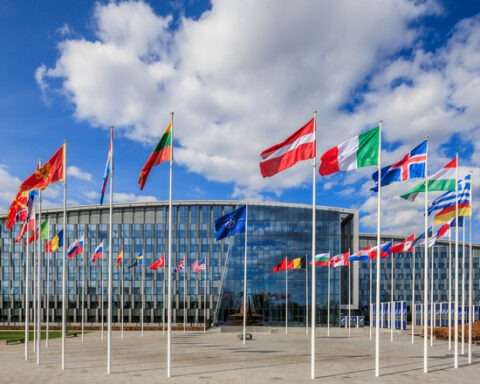VIENNA, 22 April 2021 – The report, Regional Assessment for South-Eastern Europe: Security Implications of Climate Change, which identifies risks, hot spots, shared challenges and opportunities for cooperation, presents the results of extensive consultations on climate change and security in the OSCE region. These consultations included a series of workshops and surveys and involved over 80 representatives of governmental bodies, civil society organizations, academia from South-Eastern Europe, and regional and international organizations.
Climate change is accelerating globally and the effects are felt across South-Eastern Europe with increasing frequency and intensity of heat waves, droughts, floods, and wildfires.
The report outlines seven risk clusters that are particularly relevant in terms of regional security and stability, including, agriculture, tourism, energy, health, and forests. It also defines seven specific geographic hotspots, such as shared river basins and shared mountain ecosystems, and two important challenges shared across the region: air pollution and migration.
Above all, the report highlights several regional co-operation opportunities that should be seized to address climate-related security risks.
The launching of the report coincides with Earth Day and the fifth anniversary of the signing of the Paris Agreement.
“Climate change is one of the most crucial issues of our time in the political, economic, social and environmental spheres. It can also emerge as a security issue when it interacts with other pressures such as unequal economic development, social inequality, and resource constraints. These challenges can be tackled only through a multilateral and co-operative approach,” said OSCE Secretary General Helga Maria Schmid. “In South-Eastern Europe, we have already made progress by mapping shared potential risks and defining joint solutions.”
As early as 1975, the Helsinki Final Act recognized the need for co-operation on climate change as part of the OSCE’s comprehensive approach to peace and security.
Vuk Žugić, Co-ordinator of OSCE Economic and Environmental Activities said that consultative processes like this one are instrumental in addressing various impacts of climate change in the OSCE area. “We are thankful to all participants of this regional consultation process. A great majority of participants were female who have set the scene for climate resilience in the region. In our next steps, we need the strong engagement of women and men, including youth for the development and implementation of co-operation measures that will further contribute to security and stability in the region,” said Žugić.
This report is part of the OSCE’s project “Strengthening responses to security risks from climate change in South-Eastern Europe, Eastern Europe, the South Caucasus, and Central Asia” funded by Andorra, Austria, the Czech Republic, Germany, Italy, Liechtenstein, Luxembourg, and Norway.






